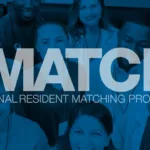Pursuing a medical education in the Caribbean offers students from around the world a distinctive and appealing alternative to traditional medical schools. With a focus on global standards, diverse clinical experiences, and the possibility of practicing in various countries, Caribbean medical schools have become a viable option for many aspiring physicians. This article explores the key aspects of obtaining an MBBS in the Caribbean, from understanding the educational landscape to financial considerations and strategic advantages.
Key Takeaways
- Caribbean medical schools offer globally recognized programs that can be more accessible and faster than direct admission in the U.S. and U.K.
- While costs may be higher compared to some Indian options, the return on investment is significant due to international exposure and career prospects.
- Safety, support, and merit-based admissions without management quotas are key features of Caribbean medical schools.
- Clinical rotations in prestigious U.S. and U.K. hospitals contribute to high USMLE pass rates and enhance residency prospects.
- Caribbean medical education provides strategic advantages like accelerated programs, multicultural environments, and pathways to practice in India.
Understanding the Caribbean Medical Education Landscape

Overview of Medical Programs
The Caribbean is home to a plethora of medical schools, each offering unique programs tailored to meet the diverse needs of international students. Among these institutions is the Washington University of Barbados School of Medicine, established in 2016, which exemplifies the region’s commitment to providing comprehensive medical education.
Medical programs in the Caribbean typically include traditional 4-year MD degrees, as well as alternative pathways such as BS/MD and Premed/MD programs. These cater to students at various stages of their educational journey. The curriculum is designed to cover all facets of medical training, from basic sciences to clinical rotations, ensuring a well-rounded educational experience.
By considering alternative pathways, students can tailor their medical education to align with their career goals and personal circumstances.
Prospective students should diligently research each school’s accreditation status, curriculum details, and clinical rotation opportunities. It is essential to understand the admission criteria and financial implications before making a decision. The following list provides a snapshot of the academic offerings in the Caribbean medical schools:
- MD Program
- Premed/MD Program
- BS/MD Program
- Clinical Experience Program
- Faculty and Academic Resources
Choosing the right program is a critical step towards a successful medical career, and the Caribbean offers a variety of options to suit different aspirations.
Cost Comparison with India and Other Countries
When evaluating the cost of MBBS programs in the Caribbean, it’s essential to consider how they stack up against the expenses in India and other countries. The Caribbean offers competitive tuition fees, often lower than those in the US or UK, which can be a deciding factor for many students. For example, the cost of an MBBS course in the Caribbean ranges from $3,500 to $4,800 per semester.
In India, the pursuit of a medical degree can be both highly competitive and costly, with some parents dedicating a large portion of their income to their child’s education. In the US, medical education expenses can soar up to a crore per year in tuition alone. This significant disparity in costs underscores the importance of a detailed financial analysis for students and their families.
The long-term benefits of studying in the Caribbean, such as accelerated pathways to becoming a doctor and enhanced international exposure, should be weighed against the initial program costs.
Here’s a quick comparison of living expenses for students in the USA, which can be reflective of costs in the Caribbean as well:
- Accommodation: 16L – 19L INR
- Healthcare: 5L INR
- Transportation: 1L INR
- Food: 7L INR
- Miscellaneous: 7L – 8L INR
It’s also crucial to consider the cost of living, which can vary significantly between countries. Additional expenses, such as flights and daily living costs, can accumulate, making comprehensive planning essential. Prospective students should also explore investment strategies like foreign stocks or international equity funds to mitigate currency fluctuations and secure finances in a stable currency.
Ultimately, the choice to study medicine in the Caribbean should be informed by a blend of cost-effectiveness, educational quality, and long-term career aspirations. Detailed research and consultation with educational advisors are recommended to make an informed decision.
Admission Criteria and Processes
The journey to a medical career in the Caribbean begins with understanding the admission criteria and processes of your chosen institution. Prospective students must navigate a series of steps, from submitting an application complete with academic transcripts and passport copies to proving English proficiency, if required. A critical component is the eligibility criteria, which often includes a minimum age requirement and educational prerequisites such as a Bachelor’s degree or equivalent credits.
Eligibility Criteria:
- Minimum age of 18 upon arrival
- Bachelor’s degree or at least 90 undergraduate credits
Financial considerations, such as the ability to cover tuition and living expenses, are also examined during the admissions process. Students must be prepared to provide financial documents and obtain a student visa, which involves additional steps like securing medical insurance and other relevant paperwork.
The admission process is a gateway to global education opportunities, and understanding it is essential to your success.
Comparing Caribbean Schools with Global Standards
When assessing the quality of Caribbean medical schools, it’s crucial to consider how they stack up against global standards. Many Caribbean institutions are recognized for their robust programs that align with North American educational curricula, featuring experienced faculty and opportunities for clinical rotations in the US and UK. These factors are instrumental in preparing students for medical careers in these countries.
Key indicators of a school’s caliber include residency match rates, residency match locations and specialties, and the number of students passing USMLE exams. These metrics provide insight into the school’s ability to equip students for success in the medical field. For example, a school with high USMLE pass rates and a diverse array of residency match locations is likely to offer a competitive edge to its graduates.
By leveraging the collective expertise and experience of a global network, individuals can navigate the complexities of the medical profession with greater confidence and strategic foresight.
Prospective students should also consider the accreditation status of Caribbean schools, as this is a significant marker of quality and international recognition. A list of accredited institutions can be found through organizations such as the World Federation for Medical Education (WFME) and the Foundation for Advancement of International Medical Education and Research (FAIMER).
Clinical Experience and Residency Prospects

USMLE Pass Rates and Guarantees
The United States Medical Licensing Examination (USMLE) is a pivotal step for medical students in the Caribbean aiming for residency in the U.S. High pass rates on the USMLE are often seen as a testament to the quality of a medical school’s program. Caribbean medical schools have been reporting impressive statistics in recent years, with a 94% USMLE Step 1 pass rate and a 92% USMLE Step 2CK pass rate for first-time test-takers over the last three years.
These figures are comparable to U.S. allopathic schools, which boast a first-time taker pass rate of 92%, and are significantly higher than U.S. osteopathic schools, which have an 82% pass rate. It’s important to note that while some institutions may offer guarantees, no program can ensure a 100% pass rate due to the challenging nature of the exams.
The commitment to providing comprehensive USMLE preparation is evident in the success rates of Caribbean graduates, reflecting the rigorous academic environment that fosters their readiness for these critical assessments.
The table below summarizes the recent USMLE pass rates for Caribbean medical school graduates:
| Year | USMLE Step 1 | USMLE Step 2CK |
|---|---|---|
| 2019 | 94% | 92% |
| 2020 | 94% | 92% |
| 2021 | 94% | 92% |
These statistics not only highlight the schools’ dedication to their students’ success but also reassure prospective students of the quality education they can expect to receive in the Caribbean.
Clinical Rotation Locations
The clinical rotation phase is a pivotal component of medical education, offering students the chance to apply their knowledge in real-world settings. Caribbean medical schools have established a global network of teaching hospitals and clinics, ensuring that students gain hands-on experience in diverse healthcare environments. These rotations are not only crucial for practical learning but also for building a professional network and enhancing residency applications.
Clinical rotations can take place in prestigious hospitals in the U.S. and U.K., providing students with exposure to advanced medical practices and a variety of healthcare systems. This experience is invaluable, as it contributes to high USMLE pass rates and equips students with the skills needed to excel in their future careers.
By considering alternative pathways, students can tailor their medical education to align with their career goals and personal circumstances.
Caribbean MD schools offer one-on-one support, tailored experiences, and dual placement opportunities for international careers, emphasizing quality education and clinical rotation support. With seasoned non-traditional students bringing a wealth of experience to the table, the clinical rotation phase in the Caribbean is designed to meet the needs of a diverse student body, from recent graduates to those changing careers.
Achieving Residency in the U.S. and U.K.
The pursuit of a medical residency in the U.S. and U.K. is a critical step for MBBS graduates from the Caribbean. High USMLE pass rates are a testament to the quality of education and preparation provided by Caribbean medical schools. For instance, a 94% pass rate for USMLE Step 1 and a 92% pass rate for Step 2CK have been reported for first-time test-takers over the last three years.
USMLE Step 1 and Step 2CK Pass Rates
| Year | Step 1 Pass Rate | Step 2CK Pass Rate |
|---|---|---|
| Year 1 | 94% | 92% |
| Year 2 | 93% | 91% |
| Year 3 | 94% | 92% |
Italics indicate a slight variation in pass rates, reflecting the consistent performance of students. Achieving residency often hinges on these scores, alongside clinical rotation experiences in the U.S. and U.K. hospitals. These rotations not only enhance clinical skills but also provide networking opportunities and exposure to the healthcare systems in these countries.
The pathway to residency is multifaceted, involving academic excellence, strategic planning, and hands-on clinical experience.
For Indian students, the transition to practicing in the U.S. requires clearing the USMLE, securing a residency program, and adapting to the competitive job market. Guidance from experts in medical education and career development is highly recommended to navigate this complex process successfully.
Financial Planning for Medical Studies in the Caribbean

Program Cost and Budgeting
When embarking on the journey of medical education in the Caribbean, a pivotal step is to meticulously plan your finances. Understanding the full spectrum of costs, from tuition fees to living expenses, is essential for creating a viable budget. Here’s a snapshot of the average annual tuition fees for international students:
| Level of Study | Tuition Fee Range (USD) |
|---|---|
| Undergraduate | $8,000 – $40,000 |
| Postgraduate | $10,000 – $60,000 |
| Doctoral | $28,000 – $55,000 |
In addition to tuition, prospective students must consider the cost of living, which includes accommodation, food, transportation, and other personal expenses. Crafting a budget that encompasses these additional costs is crucial to avoid financial strain during your studies.
Proactive financial planning and budgeting are key to a stress-free educational experience, allowing you to focus on your academic and clinical training without the burden of unforeseen expenses.
It is also wise to explore various funding sources such as scholarships, grants, and loans. Early application for these financial aids is advisable, as they can be highly competitive and are instrumental in easing the financial load of medical education.
Scholarships and Financial Aid
Securing financial aid is a critical step for students aiming to study medicine in the Caribbean. Scholarships and financial aid can significantly reduce the burden of high tuition fees and living expenses. It’s important to start researching early, as many scholarships have strict deadlines and require detailed applications.
Types of Financial Aid Available:
- Need-based scholarships
- Merit-based scholarships
- College-specific scholarships
- Country-specific scholarships
Financial planning is not just about covering costs, but also about exploring opportunities for scholarships and financial aid to ease the burden. By thoroughly estimating the costs and exploring financial aid options, students can take a step closer to realizing their medical education goals in the Caribbean.
Financial constraints are real, but so are scholarships. Many students miss out on available financial aid because they don’t look for it or assume they won’t qualify.
Managing Living Expenses Abroad
Studying medicine in the Caribbean entails not just academic fees but also the cost of living, which includes accommodation, food, transportation, and other personal expenses. Creating a detailed budget is crucial for managing these expenses effectively. For example, living costs in the Caribbean can vary, but students should anticipate expenses such as:
- Accommodation: Ranging from shared apartments to university dorms.
- Food: Both groceries and dining out.
- Transportation: Local travel and occasional trips home.
- Miscellaneous: Entertainment, study materials, and personal care.
Financial discipline and cost-saving strategies are essential to ensure that living abroad is sustainable throughout your medical education. Additionally, part-time work opportunities may be available to supplement income and provide practical experience.
By being proactive and resourceful, students can navigate the financial aspects of their education and focus on their academic and professional development.
Understanding the way of life in the Caribbean as a medical student is also important. It’s not just about the costs, but the overall experience that shapes your journey. Adapting to a new culture and lifestyle is part of the learning process, and it enriches the educational experience beyond the classroom.
Navigating the World of Medical Education: Key Destinations

Understanding the Educational Systems
The global medical education landscape is vast and varied, with each country offering its own unique approach to training future healthcare professionals. Understanding the educational systems is pivotal for students who are considering an MBBS in the Caribbean. The Caribbean medical schools often follow a curriculum that is similar to the United States, focusing on preparing students for the USMLE and subsequent practice in the U.S. or other countries where their qualifications are recognized.
In the Caribbean, medical programs are typically divided into two parts: the Basic Sciences and the Clinical Sciences. The Basic Sciences phase is usually completed on the island, while the Clinical Sciences are often pursued through rotations in affiliated hospitals in the U.S., U.K., or Canada. Here’s a simplified breakdown of the phases:
- Basic Sciences Phase (Pre-clinical): 2 years on the island
- Clinical Sciences Phase (Clinical Rotations): 2 years at affiliated hospitals
By understanding the structure and requirements of the medical programs in the Caribbean, students can strategically plan their education and career paths.
It’s also important to note that while some Caribbean medical schools offer an MBBS degree, others confer an MD degree. The choice between these programs should be informed by the student’s career goals and the recognition of these degrees in their home country or where they intend to practice.
Comparing MBBS and MD Programs
When embarking on a medical education journey, students often encounter the choice between an MBBS and an MD degree. The MBBS (Bachelor of Medicine, Bachelor of Surgery) is an undergraduate degree that is prevalent in countries like India and the UK, typically spanning 5.5 years including an internship. On the other hand, the MD (Doctor of Medicine) in the USA is a postgraduate degree that requires prior completion of a 4-year undergraduate program, with the medical course itself lasting an additional 4 years.
The decision between pursuing an MBBS or an MD is significant, as it influences the trajectory of one’s medical career. Here are some key points to consider:
- Curriculum: The MBBS curriculum is generally more focused on general medicine, while the MD program in the USA places a greater emphasis on specialization and research.
- Global Recognition: An MD from the USA is widely recognized and can lead to a broader range of career opportunities internationally.
- Postgraduate Training: MD graduates often have access to a wider array of postgraduate training opportunities, especially in the USA.
It is essential for students to assess their long-term career goals and the recognition of the degree in their home country if they plan to return after their studies abroad.
Strategic Planning for International Medical Students
For international medical students, strategic planning is a cornerstone of success when considering an MBBS in the Caribbean. Caribbean medical schools offer unique opportunities for aspiring medical professionals, with strategic planning, financial considerations, and global networking. Diverse career prospects and admission criteria are key for success.
Financial Planning: Prudent financial planning is critical due to the financial demands associated with studying abroad. A thorough understanding of tuition fees, accommodation costs, and living expenses is essential.
Admission Processes: Navigating the admission criteria and processes is a pivotal step. Be prepared for potential interviews, which assess an applicant’s communication skills, ethical judgement, and suitability for a medical career.
Visa Acquisition: Securing a study permit (student visa) is essential following acceptance. Adequate financial resources to cover tuition fees and living expenses may be required.
Global Reach: A degree from a Caribbean medical school is a passport to a global career. Graduates are highly sought after internationally, opening doors to diverse job markets.
By considering alternative pathways, students can tailor their medical education to align with their career goals and personal circumstances.
The Strategic Advantages of Studying Medicine in the Caribbean

Accelerated Programs and Global Recognition
The allure of the Caribbean medical education system is not just its pristine beaches and tropical climate, but also the accelerated MD programs that it offers. These programs are tailored to fast-track students into their medical careers, often allowing them to save valuable time. For instance, certain schools provide direct entry options, bypassing the need for traditional pre-medical coursework.
Caribbean medical schools are also known for their robust preparation for the United States Medical Licensing Examination (USMLE), which is a testament to their global standards. Students benefit from a curriculum that is aligned with international requirements, ensuring they are well-prepared for the challenges of the USMLE and their subsequent medical careers.
The strategic integration of USMLE preparation into the curriculum underscores the commitment of Caribbean medical schools to student success on a global stage.
Moreover, the Caribbean medical education landscape is characterized by a global network of teaching hospitals and clinics, which provides students with extensive clinical training opportunities. This exposure not only enhances their practical skills but also allows them to build a global network of professional contacts, which can be invaluable in their future careers.
Multicultural Learning Environment
The Caribbean medical schools are not just about imparting knowledge; they are a melting pot of cultures, offering a multicultural learning environment that is unparalleled. Students from various backgrounds come together to learn, share, and grow, fostering a global perspective on healthcare.
- Embrace diversity and inclusion
- Gain insights into different healthcare practices
- Develop cultural competence
By studying in such a diverse setting, students become culturally competent professionals, ready to serve an increasingly globalized patient population.
The exposure to diverse global cultures is not only enriching on a personal level but also equips students with the soft skills necessary for effective communication and patient care in any corner of the world. This aspect of education is crucial for developing empathetic healthcare providers who can understand and address the needs of patients from varied cultural backgrounds.
Returning to Practice in India: Pathways and Recognition
Indian medical graduates from the Caribbean have a clear pathway to practice in their home country. Upon completion of their MBBS degree, they must pass the Foreign Medical Graduate Examination (FMGE) to obtain a license to practice in India. This exam assesses their knowledge and skills in medicine, ensuring they meet the standards required for medical practice in India.
Eligibility Criteria for FMGE:
- Minimum age of 18 years
- MBBS degree from a recognized institution
- Proof of internship completion
The FMGE serves as a crucial step for Indian students to transition from international medical education to professional practice in India.
Additionally, graduates must stay informed about the latest guidelines from the Medical Council of India (MCI) regarding foreign medical qualifications. The recognition of Caribbean medical degrees in India hinges on the accreditation of the institution and the equivalency of the degree to Indian standards. It is advisable for students to consult with career advisors and educational experts to navigate the process efficiently.
Embarking on a medical career is a significant decision, and choosing the right path is crucial. Studying medicine in the Caribbean offers a unique opportunity to fast-track your journey to becoming a US-qualified doctor. With no MCAT or NEET required, a 5-year medical program, and a 97x higher success rate, the advantages are clear. Our 100% admission guarantee and satisfaction ensure your success. Don’t let financial constraints hold you back; scholarships are available to make your dream affordable. Take the first step towards a rewarding medical career with worldwide recognition and a higher earning potential. Visit our website now to learn more about the Fast-Track MD Pathway and how Divine Education Abroad Consultancy can guide you every step of the way.
Conclusion
In conclusion, pursuing an MBBS in the Caribbean presents a unique and viable pathway for aspiring medical professionals. With a blend of recognized programs, competitive costs, and a supportive environment, students can access quality education that aligns with global standards. The Caribbean medical schools offer merit-based admissions, diverse clinical experiences, and the potential for a high return on investment. As students consider their options, they must weigh the financial implications, safety measures, and the strategic advantages of studying in this region. Ultimately, the decision to study medicine in the Caribbean should be informed by thorough research, financial planning, and a clear understanding of long-term career goals. For those willing to embrace the challenge, the Caribbean can be a gateway to a rewarding medical career with international recognition.
Frequently Asked Questions
What is the cost comparison between MBBS in the Caribbean and India?
The cost of MBBS courses in the Caribbean ranges from US$ 3,500 to US$ 4,800 per semester, which may be lower than some US or UK options but higher than some Indian options. However, it offers superior international exposure and potentially faster routes to becoming a doctor.
What are the admission criteria for Caribbean medical schools?
Admission criteria typically include a minimum age of 18, a Bachelor’s degree or at least 90 undergraduate credits, English proficiency, and financial capability. Admissions are merit-based and do not rely on management quotas.
Are Caribbean medical schools recognized internationally?
Yes, Caribbean medical schools are recognized for preparing students for medical careers in the US, Canada, and beyond, with programs aligning with North American curricula and opportunities for clinical rotations in the US and UK.
Can I practice medicine in India after studying in the Caribbean?
Yes, there is comprehensive support for students wishing to return and practice in India, including guidance on qualifications and procedures for a smooth transition.
What are the USMLE pass rates for Caribbean medical school graduates?
Caribbean medical schools pride themselves on high USMLE pass rates for Step 1 and Step 2, thanks to focused preparation approaches, although no program can guarantee a 100% pass rate.
Will I be treated differently during a US residency if I graduated from a Caribbean medical university?
Graduates from Caribbean medical schools are typically treated the same as other residents during US residency programs, with no differentiation based on the location of their medical school.












